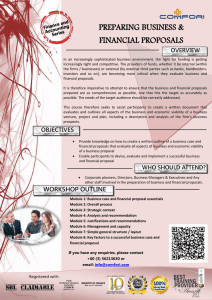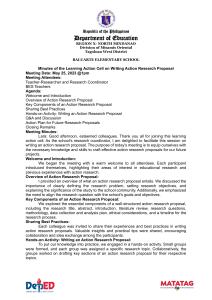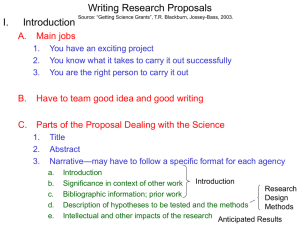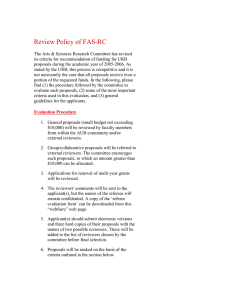General Grant Writing Tips for Success
advertisement
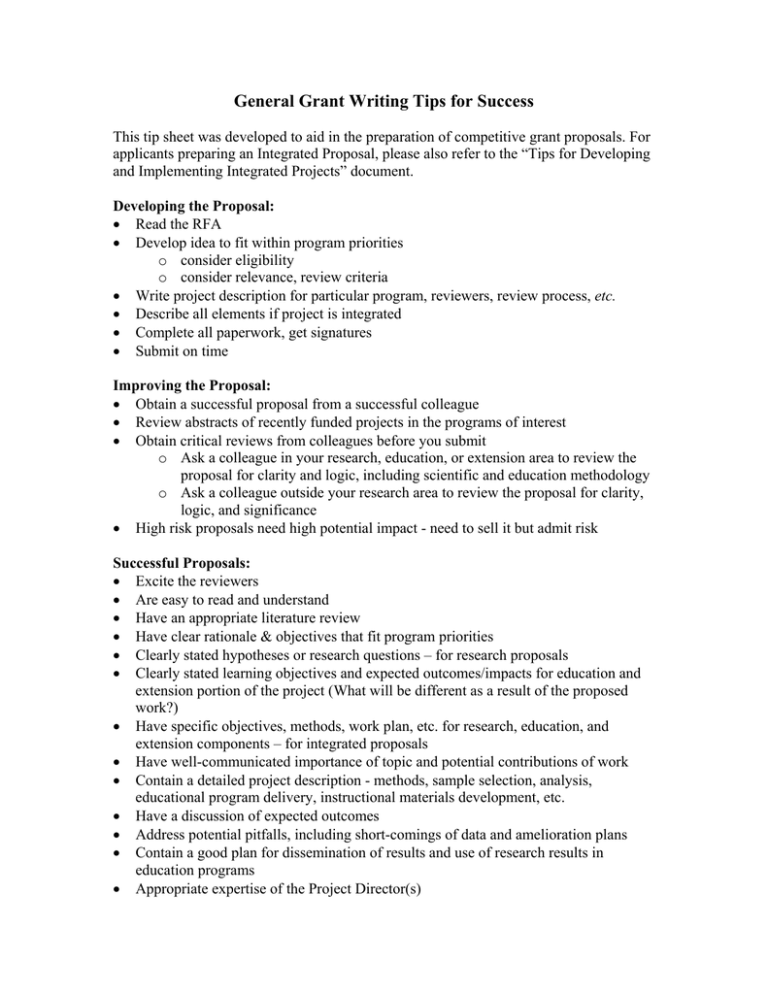
General Grant Writing Tips for Success This tip sheet was developed to aid in the preparation of competitive grant proposals. For applicants preparing an Integrated Proposal, please also refer to the “Tips for Developing and Implementing Integrated Projects” document. Developing the Proposal: • Read the RFA • Develop idea to fit within program priorities o consider eligibility o consider relevance, review criteria • Write project description for particular program, reviewers, review process, etc. • Describe all elements if project is integrated • Complete all paperwork, get signatures • Submit on time Improving the Proposal: • Obtain a successful proposal from a successful colleague • Review abstracts of recently funded projects in the programs of interest • Obtain critical reviews from colleagues before you submit o Ask a colleague in your research, education, or extension area to review the proposal for clarity and logic, including scientific and education methodology o Ask a colleague outside your research area to review the proposal for clarity, logic, and significance • High risk proposals need high potential impact - need to sell it but admit risk Successful Proposals: • Excite the reviewers • Are easy to read and understand • Have an appropriate literature review • Have clear rationale & objectives that fit program priorities • Clearly stated hypotheses or research questions – for research proposals • Clearly stated learning objectives and expected outcomes/impacts for education and extension portion of the project (What will be different as a result of the proposed work?) • Have specific objectives, methods, work plan, etc. for research, education, and extension components – for integrated proposals • Have well-communicated importance of topic and potential contributions of work • Contain a detailed project description - methods, sample selection, analysis, educational program delivery, instructional materials development, etc. • Have a discussion of expected outcomes • Address potential pitfalls, including short-comings of data and amelioration plans • Contain a good plan for dissemination of results and use of research results in education programs • Appropriate expertise of the Project Director(s) • • Critically reviewed by colleagues before submission Follow the submission rules!!! Reasons for Lower Ratings: • Project of little or no relevance to CSREES mission and/or program priorities • Insufficient preliminary data or evidence from literature • Exceeds page limit, poorly written, unclear objectives or hypotheses • Poor record of results (e.g., publications) from previous funding • Experiments or objectives not cohesive, different functions aren’t integrated • Low scientific merit, basic flaws in logic, demonstrates lack of scientific understanding • No hypotheses, research questions, or learning objectives • Not innovative, little new information gained • Inappropriate methods or methods too vague • Not as exciting as other proposals (i.e., worth funding, but ran out of funds) • Project Director(s) not qualified

